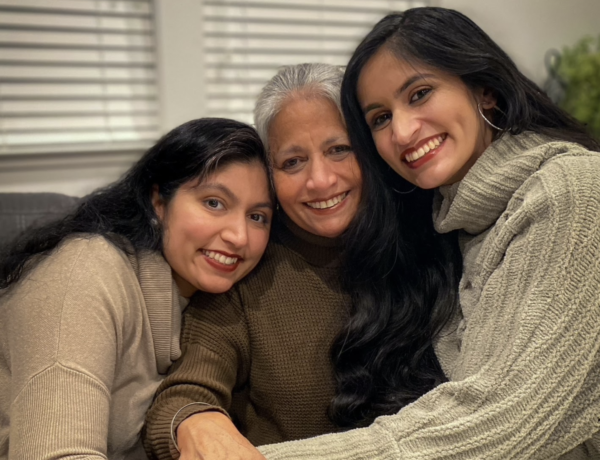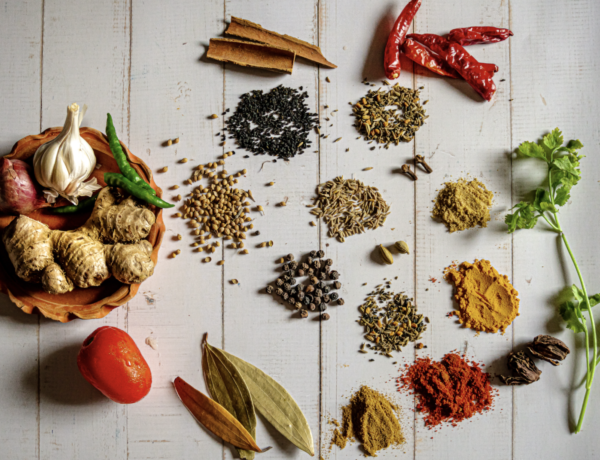by Navya Kaur
“Me” time in quarantine: How a year of solitude gave Punjabi mothers the support to focus on themselves
Punjabi communities, particularly in the diaspora, are tight-knit. Sunday mornings are spent at the gurdwara, evenings are for chaa at the neighbor’s house, and nights are an excuse to gather friends and family for kirtan, or to celebrate any special or ordinary occasion. When the world went under lockdown last year due to the COVID-19 pandemic, these social activities came to an abrupt halt as we adjusted to a challenging life of quarantine. What became designated as “the loneliness epidemic” unfolded as in-person socialization disappeared.
But for some mothers in the Punjabi community, this extended time of solitude gave them the freedom to focus on themselves without feeling like they were compromising their demanding roles as mothers. Motherhood, especially for new mothers, can be a nerve-wracking and stressful experience on its own. But some mothers who also work have had to contend with the guilt of being a working mom, where battling responsibilities of work and family make them feel like they aren’t doing justice to either. The physical split between home and office provides a mental split; as Anantpreet Kaur Grewal from Los Angeles succinctly put it: “My day just revolves around [my baby] with the exception of naps. Going to work gives me time away from my daughter.”
In-Laws Support Mothers
The pandemic, however, eliminated the notion of a workplace vs. a home. As both spheres merged and commutes disappeared, new mothers faced the burden of being mothers and employees at the same time. Despite it being a more intense experience, the pandemic allowed some new Punjabi mothers to move in with in-laws or parents, who were also working remotely. With extra help at hand and extra time at home, new mothers could be mothers and employees without being consumed by either.
“Our initial plan if COVID hadn’t happened was to get some sort of childcare,” said Harmeet Kaur, 30, from Connecticut. “But now that COVID happened, we moved in with family and got their support. In the mornings, I’ll spend time with my baby and then my in-laws are up and available and I’ll be able to start my day.”
Harmeet delivered her baby during the pandemic and recently came back to working full-time. She found that having her attention simultaneously on her baby and work was hard, but the additional familial support at home eased the stress of housework.
“I have not been cooking anymore because we have family support, thankfully,” said Harmeet. “I am present more with my baby and husband at times I would not have been able to.”
24-year-old first-time mom Pawanjot Kaur also sees the pandemic’s silver lining. While her experience is different from Harmeet’s, as she has been on a one-year maternity leave, having her family at home with her has given her the support she’s needed to execute passion projects that have been in ideation for years.
“My father-in-law and husband have been working from home which has been amazing. Whenever I need a break, I can just hand [my daughter] off to them,” said Pawanjot. “It’s honestly such a blessing to have this time to stay at home and rest and rejuvenate. I can enjoy it and spend unlimited time with my daughter.”
Taking Up New Hobbies
For mothers whose children are no longer in need of constant caretaking, this year-long quarantine has given them the freedom to pick up hobbies they abandoned as children or always dreamed of trying as adults.
“I realized that now that I’m not spending time commuting or running around, I now have the time to do things around the house,” said Balwinder Kaur. “I tried gardening and jewelry-making, which I’ve never done before.”
Another mother shared that she had been able to cook for fun without the pressure of preparing meals quickly in the morning before work or school. A different mother shared that she’s been using the time to focus on her health.
“With the pandemic, we found new ways to entertain ourselves,” said the Bay Area mother. “I started hiking with my friends which is something I always wanted to do for my health. For a long time I was scared, I thought I couldn’t do this hike that I wanted to do but I did it and I could do it again. If it were not a pandemic I probably would have never tried it.”
Don’t Wait for the Next Pandemic
Many Punjabi mothers had to wait until a nationwide quarantine to try new things, revealing that mothers, particularly immigrant mothers, are not given the space to prioritize themselves. Immigrant mothers who come to America are oftentimes forced to reinvent their lives by finding new skills and friends. In the process, their lives can be constructed around their children, for whom they are typically sacrificing their old lives for.
I think of my mother in this case. She came to America from Punjab in 1994. The friends she made were often mothers of my own friends. Social activities were often family get-togethers where her children or her husband accompanied her. Weekly visits to the gurdwara allowed for quick small talk, but there never was a strong concept of “hanging out with your girlfriends” that mothers who grew up in America may have had. Her hobbies were always related to child-rearing which left her with little time to explore other interests.
On the other hand, the Punjabi women I interviewed, who grew up in America and became mothers during the pandemic, had the luxury of moving in with their parents or in-laws as remote work continued, providing them with invaluable support as they eventually ventured back into the workforce. Since some older mothers, particularly immigrant mothers, were not offered this luxury when raising a child pre-COVID, this pandemic offered them a delayed opportunity to explore hobbies outside of the confines of being a mother or wife.
“Even if I give some things up, knowing I had a chance and I did it, I have no regrets. I’m glad that during the pandemic I was able to check off a few things,” said Balwinder.
Keeping Sangat Alive
In addition to discovering new hobbies, even throughout the pandemic, Sikh mothers kept their Sikhi and sangat alive. For instance, a few continued to do seva and paat together via Zoom. Pawanjot started an initiative with her friends called Sufna Boutique that financially supports and empowers women in Punjab. A Bay Area mother sewed masks for frontline workers and was part of a weekly virtual Sukhmani Sahib group. Balwinder taught Khalsa School virtually and created a group where mothers exchanged ideas on how to engage with younger kids. Though families were no longer going to gurdwaras weekly, Sikh mothers still found ways to prioritize their Sikhi.
Moving Forward
As the end of the pandemic nears, the long-term impact of this year in solitude has yet to be determined. Some Punjabi mothers were given a unique opportunity to spend quality time with their families while exploring their own hobbies and expanding their Sikhi; but moving forward, personal exploration should not be a luxury allotted to some. Mothers deserve the chance to create an identity that’s not contingent on their family and should be able to carry on these hobbies long after the pandemic is over. As family members, we should encourage mothers to carve out personal time for themselves, give them opportunities to connect with their friends alone, and take on more of the responsibilities that Sikh mothers typically do alone. They should be able to flourish independently with a strong support system behind them.
About Navya Kaur

Navya Kaur is a writer based in the Bay Area of California. She recently graduated from San Jose State University with a major in American Studies and minor in Computer Science and is now working at a tech startup. In her free time, she enjoys crocheting, reading, and baking. You can read more of her writing here.





No Comments